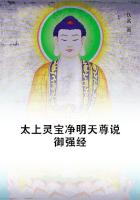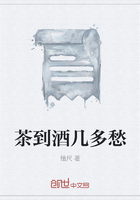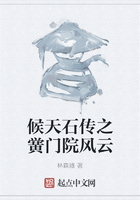This weariness subsided when he relinquished his work, and I have a cheerful letter from him, written in the autumn of 1865. But towards the close of that year he had an attack of illness, from which he never completely rallied. He continued to attend the Friday Evening Meetings, but the advance of infirmity was apparent to us all. Complete rest became finally essential to him, and he ceased to appear among us. There was no pain in his decline to trouble the memory of those who loved him. Slowly and peacefully he sank towards his final rest, and when it came, his death was a falling asleep. In the fulness of his honours and of his age he quitted us; the good fight fought, the work of duty--shall I not say of glory?--done. The 'Jane' referred to in the foregoing letter is Faraday's niece, Miss Jane Barnard, who with an affection raised almost to religious devotion watched him and tended him to the end.
I saw Mr. Faraday for the first time on my return from Marburg in 1850.
I came to the Royal Institution, and sent up my card, with a copy of the paper which Knoblauch and myself had just completed. He came down and conversed with me for half an hour. I could not fail to remark the wonderful play of intellect and kindly feeling exhibited by his countenance. When he was in good health the question of his age would never occur to you. In the light and laughter of his eyes you never thought of his grey hairs. He was then on the point of publishing one of his papers on Magnecrystallic action, and he had time to refer in a flattering Note to the memoir I placed in his hands. I returned to Germany, worked there for nearly another year, and in June, 1851, came back finally from Berlin to England. Then, for the first time, and on my way to the meeting of the British Association, at Ipswich, I met a man who has since made his mark upon the intellect of his time; who has long been, and who by the strong law of natural affinity must continue to be, a brother to me.
We were both without definite outlook at the time, needing proper work, and only anxious to have it to perform. The chairs of Natural History and of Physics being advertised as vacant in the University of Toronto, we applied for them, he for the one, I for the other; but, possibly guided by a prophetic instinct, the University authorities declined having anything to do with either of us.
If I remember aright, we were equally unlucky elsewhere.
One of Faraday's earliest letters to me had reference to this Toronto business, which he thought it unwise in me to neglect.
But Toronto had its own notions, and in 1853, at the instance of Dr. Bence Jones, and on the recommendation of Faraday himself, a chair of Physics at the Royal Institution was offered to me.
I was tempted at the same time to go elsewhere, but a strong attraction drew me to his side. Let me say that it was mainly his and other friendships, precious to me beyond all expression, that caused me to value my position here more highly than any other that could be offered to me in this land. Nor is it for its honour, though surely that is great, but for the strong personal ties that bind me to it, that I now chiefly prize this place. You might not credit me were I to tell you how lightly I value the honour of being Faraday's successor compared with the honour of having been Faraday's friend. His friendship was energy and inspiration; his 'mantle' is a burden almost too heavy to be borne.
Sometimes during the last year of his life, by the permission or invitation of Mrs. Faraday, I went up to his rooms to see him.
The deep radiance, which in his time of strength flashed with such extraordinary power from his countenance, had subsided to a calm and kindly light, by which my latest memory of him is warmed and illuminated. I knelt one day beside him on the carpet and placed my hand upon his knee; he stroked it affectionately, smiled, and murmured, in a low soft voice, the last words that I remember as having been spoken to me by Michael Faraday.
It was my wish and aspiration to play the part of Schiller to this Goethe: and he was at times so strong and joyful--his body so active, and his intellect so clear--as to suggest to me the thought that he, like Goethe, would see the younger man laid low. Destiny ruled otherwise, and now he is but a memory to us all. Surely no memory could be more beautiful. He was equally rich in mind and heart. The fairest traits of a character sketched by Paul, found in him perfect illustration. For he was 'blameless, vigilant, sober, of good behaviour, apt to teach, not given to filthy lucre.' He had not a trace of worldly ambition; he declared his duty to his Sovereign by going to the levee once a year, but beyond this he never sought contact with the great. The life of his spirit and of his intellect was so full, that the things which men most strive after were absolutely indifferent to him. 'Give me health and a day,' says the brave Emerson, 'and I will make the pomp of emperors ridiculous.' In an eminent degree Faraday could say the same.
What to him was the splendour of a palace compared with a thunderstorm upon Brighton Downs?--what among all the appliances of royalty to compare with the setting sun? I refer to a thunderstorm and a sunset, because these things excited a kind of ecstasy in his mind, and to a mind open to such ecstasy the pomps and pleasures of the world are usually of small account. Nature, not education, rendered Faraday strong and refined. A favourite experiment of his own was representative of himself. He loved to show that water in crystallizing excluded all foreign ingredients, however intimately they might be mixed with it. Out of acids, alkalis, or saline solutions, the crystal came sweet and pure. By some such natural process in the formation of this man, beauty and nobleness coalesced, to the exclusion of everything vulgar and low. He did not learn his gentleness in the world, for he withdrew himself from its culture; and still this land of England contained no truer gentleman than he.
Not half his greatness was incorporate in his science, for science could not reveal the bravery and delicacy of his heart.
But it is time that I should end these weak words, and lay my poor garland on the grave of this Just and faithful knight of God.














